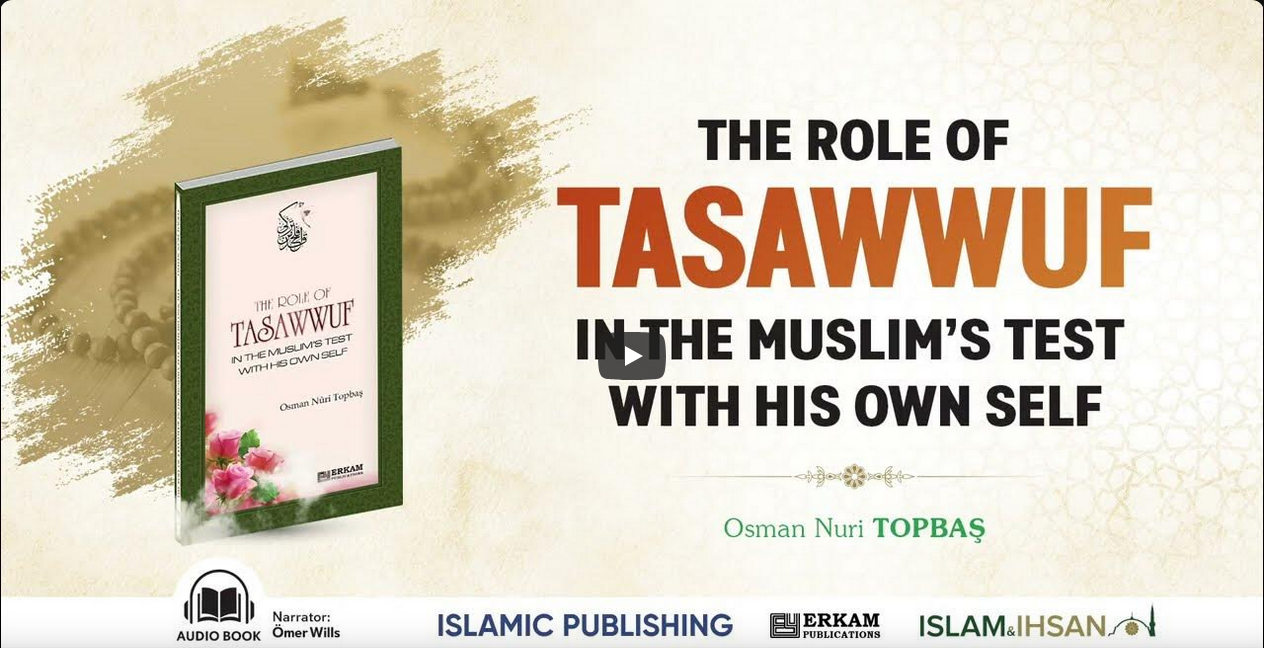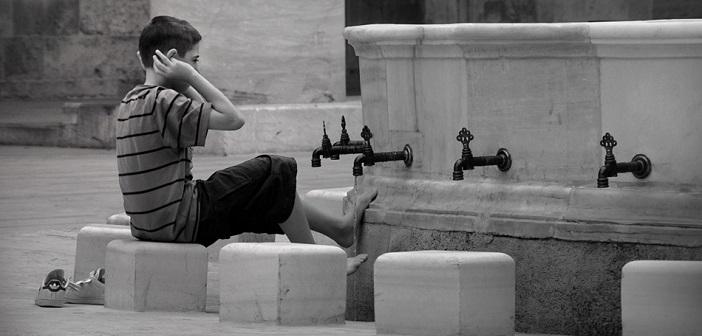
Manners of Making Jokes
What is the manners of making jokes? What is the making jokes etiquette?
When we look into its results such as relaxing, comforting, strengthening love and friendship, joking is essentially a permitted deed. Our beloved Prophet (pbuh), sultan of our hearts, occasionally made jokes and approved and welcomed the jokes of some companions. However, he (pbuh) prohibited hurting, mocking, belittling, obscene, and exaggerated jokes and jokes based on lies. The Prophet’s (pbuh) own jokes clearly show us that our jokes should be wise and elegant.
There was always a part of truth in the Prophet’s jokes. He never resorted to lies in his life even for making simple jokes and he did not approve to see such behavior from his followers, either. According to Abu Huraira’s (r.a.) report, companions of the Prophet (pbuh) said that:
“O Messenger of Allah! You forbid us from making jokes but you yourself make jokes.” Allah’s Messenger (pbuh) told them:
“Yes, but I do not say anything but the truth.” (Tirmidhi, Birr, 57) In another saying, the Prophet (pbuh) made the following warnings related to this matter:
“Woe to him who tells things, speaking falsely, to make people laugh thereby. Woe to him! Woe to him!” (Abu Dawud, Adab, 80)
Some of the examples of Prophet’s elegant and truth based jokes are as follows:
A gullible man came to the Messenger of Allah (pbuh) and asked for a camel from him as a ride. The Prophet (pbuh) said:
“Okay, what do you say if I give you a female baby camel?” The man replied amazedly:
“O Messenger of Allah! What am I going to do with a baby camel? How can it carry me?” Allah’s Apostle (pbuh) replied:
“Are not all camels the babies of a mother camel?” (Tirmidhi, Birr, 57)
In another incident, an old lady from the Ansar (residents of Medina) came to the Prophet and told him:
“Please make a dua (supplication) for me that I go to heaven.” The Prophet replied: “Did you not hear it? Old women cannot go to heaven.” The old lady became very sad when she heard this. Then the Prophet said smiling: “Did not you read the verse: “We have created their companions of special creation and made them virgin-pure and beloved, equal in age” (Al-Waqia, 56; 35-37). Then in a pleasant manner he explained to the old lady that old women would go to heaven as young girls and thus he cheered her.” (Haythami, X, 419; Tirmidhi, Shamail, p. 91-2)
A poet named Abbas b. Mirdas found his share from war booty insufficient and wrote a poem complaining about the situation to the Prophet (pbuh). When Allah’s Messenger (pbuh) heard about this, he told Bilal Habashi: “When I tell you to cut Abbas’s tongue, take him and give him a garment.” Then he called Abbas and told him:
“I will have your tongue cut.” and turned to Bilal and said:
“O Bilal! Take him and cut his tongue.” When Bilal held Abbas’s hand and was taking him away, Abbas began to scream:
“O Messenger of Allah! Is he going to cut my tongue? O people of Muhajirun! Is he going to cut my tongue? O people of Ansar! Is he going to cut my tongue?” Upon this Bilal told him:
“Be quiet! Allah’s Messenger (pbuh) asked me to give you a garment and so shut your mouth” and gave him an extra garment.” (Ibn Sa’d, IV, 273)
Anas b. Malik (r.a.) narrated: “There was man named Zahir from the people of the desert. Whenever Allah’s Messenger (pbuh) came to the desert, Zahir would give him the products of the desert (pbuh) as gifts. In return Prophet (pbuh) would fill Zahir’s bag with items that he needed and told him:
“Zahir is our desert and we are his city.”
Allah’s Messenger (pbuh) loved Zahir very much. He was not a good-looking person. One day when Zahir was trying to sell his goods, the Prophet (pbuh) closed his eyes with his hands from behind. Zahir tried to escape and said:
“Who are you? Leave me alone” Then he realized that it was the Prophet (pbuh) and he was relieved. Allah’s Messenger (pbuh) began to announce:
“O people! This slave is for sale.” Zahir became very sad and told the Prophet (pbuh):
“O Messenger of Allah! Who would like to buy a worthless slave like me?” Allah’s Messenger cheered him up saying:
“No, O Zahir! You are a very valuable person in the presence of Allah the Almighty.” (Ibn Hanbal, III, 161)
Here in that tradition Allah’s Messenger (pbuh) implied to say that all human beings are the slaves of Allah the Almighty.
Mahmud b. Rabi (r.a.) said that, “I remember that when I was about five years old, Allah’s Messenger (pbuh) would take some water to his mouth from a bucket in front of our house and threw it to my face.” (Bukhari, Ilm, 18) Here we see that the Prophet (pbuh) made jokes proper to the ages of the children and joined in their plays, and thus is a model for believers with his actions. His actions were the reflection of his love and relation with the children. On the other hand, spraying water to a child’s face was kind of a spiritual blessing from the Prophet (pbuh) for the child.
It is reported that Allah’s Messenger (pbuh) sometimes had fun with Anas b. Malik saying, “O you with the two ears.” (Abu Dawud, Adab, 84)
Allah’s Messenger (pbuh) not only made jokes himself but also tolerated some of the jokes of his companions. One day a humoristic companion named Nuaim al Ansari (r.a.) bought some fresh fruit and vegetables in Medina and took them to the Prophet (pbuh). Then he told the Messenger of Allah (pbuh):
“O Messenger of Allah! I bought these for you and they are gifts for you.” A while later when the seller came and asked for his money, Nuaim took him to the Prophet (pbuh) and said:
“O Messenger of Allah! Could you pay this man’s money?” Allah’s Messenger (pbuh) asked him:
“Weren’t these gifts for us?” Nuaim (r.a.) replied:
“O Messenger of Allah! When I bought these, I did not have money. But I wanted you to taste them. This is why I bought them.” Upon this he (Allah’s Apostle) smiled and paid the seller’s money.” (Ibn Hajar, al-Isabah, III, 570)
Another humoristic and repartee companion named Suhaib b. Rumi, who was also among the most suffered believers, narrated one of his memories as follows:
“One day when I visited the Messenger of Allah (pbuh), he had dates and bread on his table.” He invited me saying:
“Here have some!” My eyes were aching at the time. I immediately sat and began to eat. Allah’s Apostle (pbuh) told me smiling:
“Your eyes are hurting but you can still eat.” I replied:
“O Messenger of Allah! I am eating with the non-aching part.” Upon my answer I saw the Messenger of Allah laughed till his front teeth were visible.” (Ibn Majah, Tibb, 3)
Once Aisha (r.anha) cooked a soup called harira and invited Sawda (r. anha). When Sawda refused her invitation, Aisha (r. anha) told her, “Either you will eat this or I will rub it in your face.” When Sawda did not have the soup, Aisha (r. anha) tried to rub it in her face. Allah’s Messenger (pbuh) intervened. He smiled and helped Sawda (r. anha) to do the same to Aisha (r.anha).” (Haythami, IV, 315-316)
These are some examples for the wise and graceful jokes from the life of the Messenger of Allah (pbuh). Especially joking with children, spouses, needy, poor, and lonely members of the society are presented to the believers as prophetic measures of joking. It is essential to avoid false and hurting jokes. It should not be forgotten that making jokes without paying attention to the time and place is considered as an extreme behavior. And extremism is against the prophetic custom which orders moderation in every aspect of life.
Source: An Excellent Exemplar, Osman Nuri Topbaş, Erkam Publications
The Human Reality














